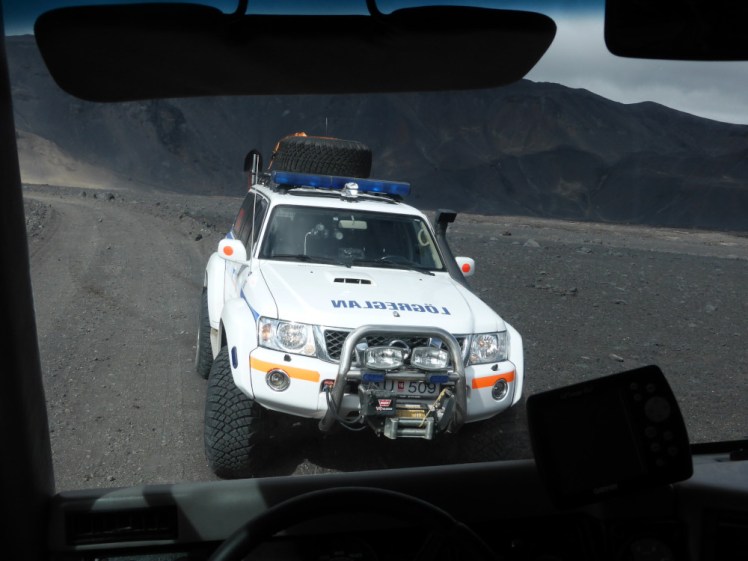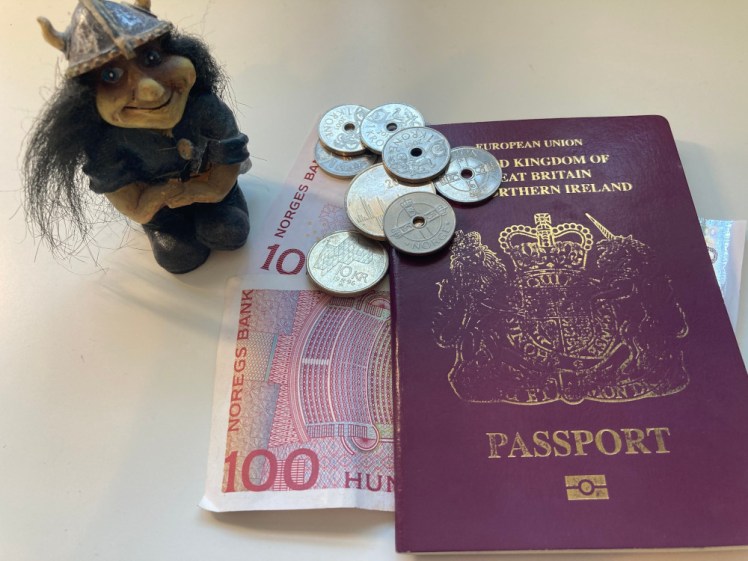Ok, part four and we get to everything going wrong: D is for Disaster! Things will go wrong and learning to deal with that is all part of the learning experience that is solo travel.
I’m going to gloss over proper emergencies. Make sure you know the local emergency number – it varies from country to country and while in the US and the UK, you use the same number to contact all emergency services, in other places you might find there’s a different number for police, fire and ambulance. Make sure you know your local numbers.

In a similar vein, make sure you have good travel insurance which includes things like emergency repatriation. That’s my mum’s favourite newspaper bingo square, the “we didn’t get travel insurance and now no one will fly my husband home after his serious injury/major illness” accompanied by grumpy faces and possibly a crowdfunding link. Travel insurance is vital.
So, with real emergencies covered under those two headings, let’s move on to the sort of thing you’re going to have to deal with yourself. There are plenty of smaller non-life-threatening disasters that can befall you when you’re travelling on your own and learning to keep a cool head and handle them are among the key life skills and moments of personal development that can take a solo trip from a holiday to a valuable learning experience.

The first thing is to try to avoid those disasters in the first place. Avoid missing flights by giving yourself plenty of time to get to the airport and through the various queues. Try not to lose small things by putting them in zipped pockets and bags and getting out of the habit of ever putting them down. Avoid getting lost by looking up directions or bus numbers in advance, saving pins to an offline Google map on your phone and avoid running out of phone battery at the crucial moment by not picking up and playing with your phone when you’re bored on a day when you might wish you’d conserved the battery. So many things are out of your control; don’t let something you do control become your disaster.

When something goes wrong, don’t panic. Take a moment. Take a breath. Say “ok” or “right…” out loud. You can’t fix something by panicking about it. Engage the calm, rational part of your brain. You do have one, even if you think you don’t. Finding it right now may be personal growth for you but you need your rational brain, not your feather-filled brain. Think about these questions:
- What needs to happen to make this right?
- Can I do that thing?
- If not, what else could I do to fix it?
- If I can’t fix it, what can I do to mitigate it?
Let’s look at some examples:
You’ve missed your flight

This will probably happen to most people eventually. Ok. I assume you’re at the airport. Your airline should have a help desk. First stop is to go and see what they can do to help. If you’ve got a booking with them, they’re generally supposed to give you every opportunity to get where you’re going. It may cost extra, it may require you to stay where you are for an extra day or two or it may send you via a route you didn’t want to go. Take what you can get.
Another option might be to book new flights and reclaim the cost from your insurance but a) you might run up against your excess and 2) the airline may decide you’re not covered for that if there’s a possibility it’s your own fault you missed the flight.
You’re lost in a strange city where you don’t speak the language

It’s not a guarantee that people all over the world will speak English and it’s impractical to “just learn” the language of every place you ever visit. So I have two suggestions for when you can’t ask for help. The first is Google Translate, although you may run into trouble getting an answer if your phone doesn’t have a keyboard with the appropriate alphabet on it (download a local keyboard if you’re going somewhere that doesn’t use the same alphabet as English!). The second is to find a hotel or hostel, preferably a big shiny chain where you’d stay if you were there for a boring conference. That sort of place tends to cater for international guests and therefore tends to have English- speaking receptionists who are usually happy to help even if you’re not a guest – hi trainee Maria in Murmansk! You may also be able to borrow their wifi and that alone can sometimes solve your problem.
You’ve lost your passport and wallet

I know we’re used to taking mountains of stuff but almost everything is replaceable. All you really need is access to money and your passport. Assuming there’s money in your bank account, your bank can arrange to get emergency money to you – have a relative or friend who’s able to transfer you the cost of a flight home if everything goes to pieces, or who can book a flight and send you the details. Keep your bank’s phone number in a very safe place and they will sort you out. Borrow the phone at that hotel I mentioned if you need to.
As for the passport, Emergency Travel Documents are a thing that exists. They cost £100, you apply online, your passport will be cancelled (so don’t apply for an ETD just because you’re too lazy to go and get your passport from your travel drawer!) and you may need to go for an interview at your nearest embassy/consulate. It’ll be inconvenient and it’ll cost you but it’s not full-on extortionate and it means losing your passport isn’t the end of the world. You can still get home – in fact, as it has your travel plans printed on it and allows you to travel through 5 countries, it may not even alter your itinerary too much.
There are too many potential disasters for me to give you a solution to all of the, but a surprising number aren’t as bad as they seem if you take a moment, take a breath and engage your cold calm robot brain. You’ve got this.